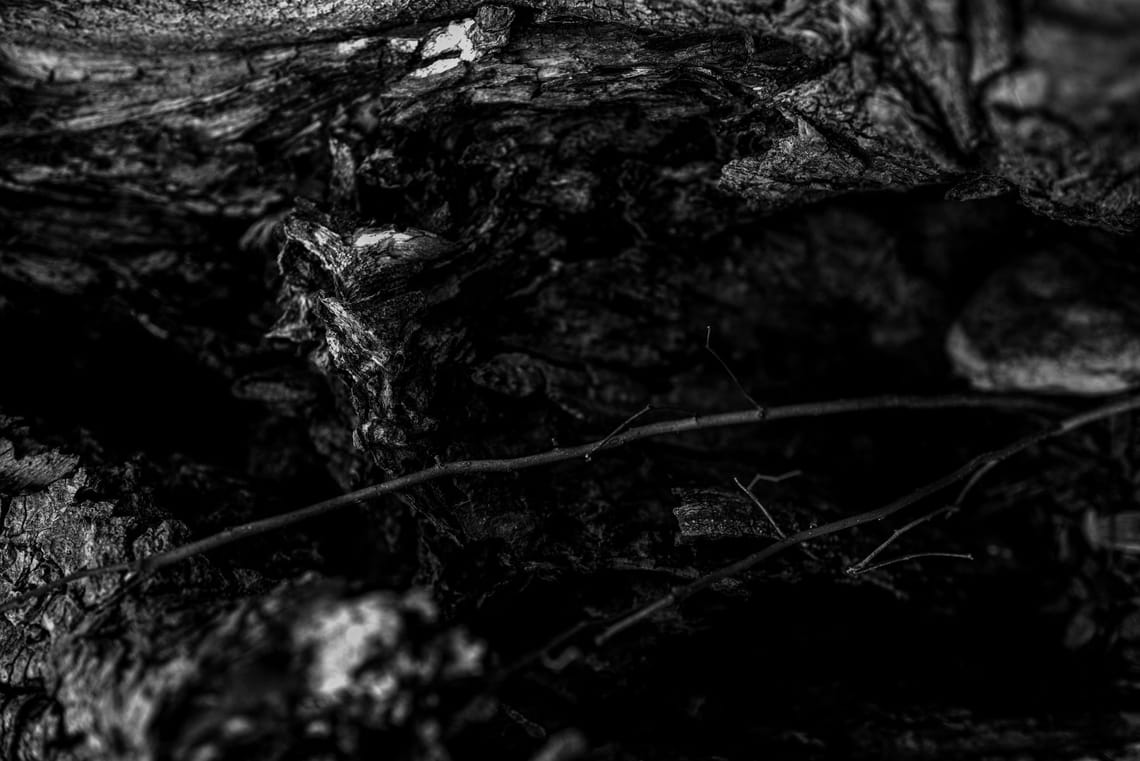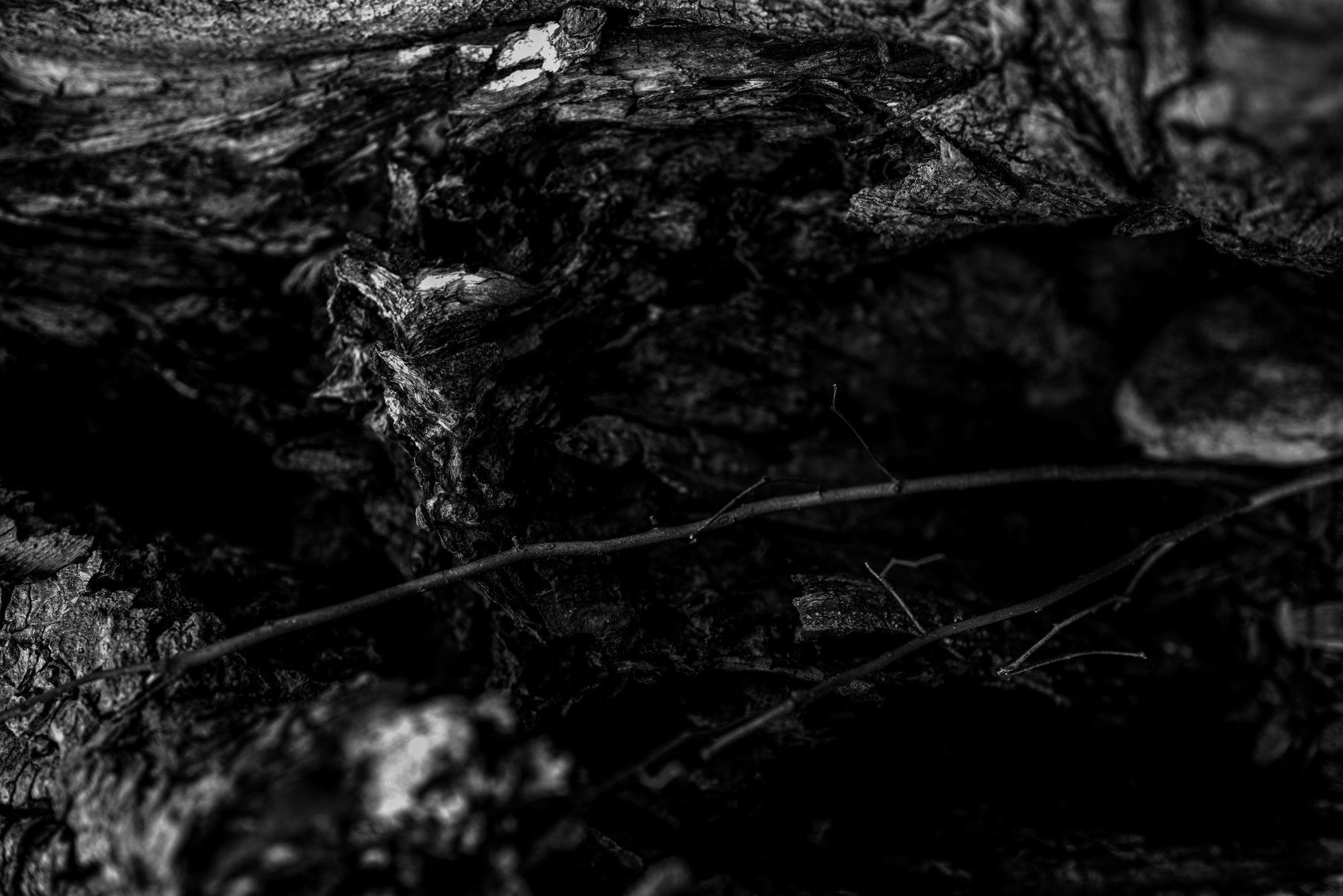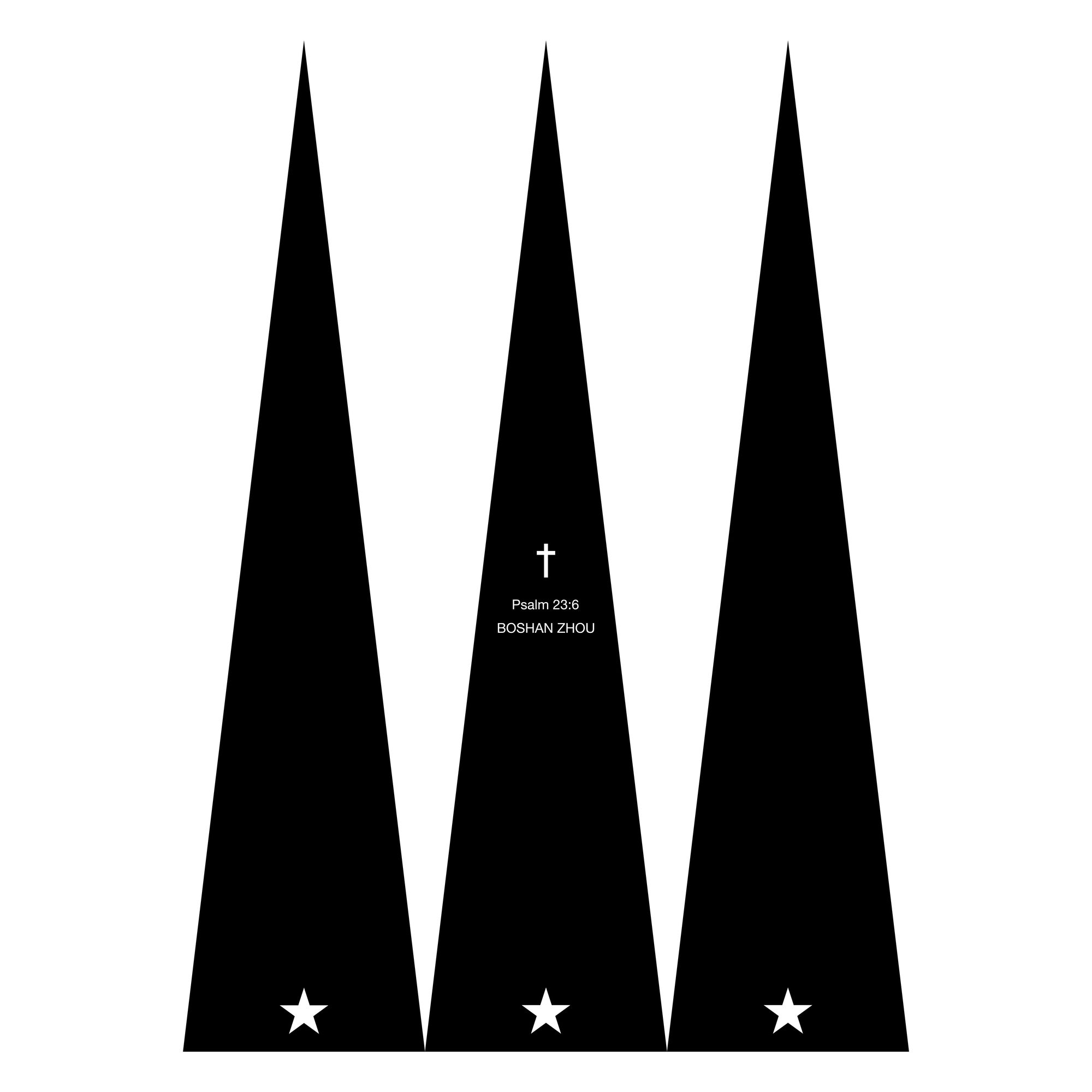
Genesis 22
标题:Genesis 22
年份:2020
尺寸:47.28 x 70.85 cm
Title: Genesis 22
Year: 2020
Dimension: 47.28 x 70.85 cm

「Genesis」系列作品,一共五十幅,对应《圣经》创世纪的五十章。
The "Genesis" series consists of 50 works, corresponding to the 50 chapters of the Bible's Genesis.
22 / 50.
22:1 这些事以后, 神试验亚伯拉罕,对他说:“亚伯拉罕啊!”他回答:“我在这里。”22:2 神说:“带着你的儿子,就是你所爱的独生子以撒,到摩利亚地去,在我所要指示你的一座山上,把他献为燔祭。”22:3 亚伯拉罕清早起来,预备好了驴,带着两个童仆和自己的儿子以撒,也劈好了献燔祭用的柴,就起程到 神指示他的地方去。22:4 第三日,亚伯拉罕举目观望,远远地看见了那地方。22:5 亚伯拉罕对他的童仆说:“你们和驴留在这里,我与孩子要到那边去敬拜,然后回到你们这里来。”22:6 亚伯拉罕把献燔祭的柴,放在他儿子以撒的身上,自己手里拿着火与刀。他们二人一起向前走的时候,22:7 以撒问他父亲亚伯拉罕说:“爸爸!”亚伯拉罕回答:“我儿!有甚么事?”以撒说:“你看,火与柴都有了,可是献燔祭用的羊羔在哪里呢?”22:8 亚伯拉罕回答:“我儿, 神自己必亲自预备献燔祭用的羊羔。”于是二人继续一起前行。22:9 他们到了 神指示他的地方,亚伯拉罕就在那里筑了一座祭坛,摆好了柴,捆绑了自己的儿子以撒,就把他放在祭坛的柴上。22:10 亚伯拉罕伸手拿刀,要宰杀自己的儿子的时候,22:11 耶和华的使者从天上呼叫亚伯拉罕,说:“亚伯拉罕,亚伯拉罕!”亚伯拉罕回答:“我在这里。”22:12 天使说:“不可在这孩子身上下手,一点也不可害他;现在我知道你是敬畏 神的了,因为你没有留下你的儿子、你的独生子不给我。”22:13 亚伯拉罕举目观望,看见在后面有一只公绵羊,两角扣在稠密的小树丛中;亚伯拉罕就去取了那只公绵羊,把牠献为燔祭,代替自己的儿子。22:14 亚伯拉罕给那地方起名叫“耶和华以勒”。直到今日,人还说:“在耶和华的山上必有预备。”22:15 耶和华的使者第二次从天上呼叫亚伯拉罕,22:16 说:“耶和华说:‘我指着自己起誓,你既然作了这事,没有留下你的儿子、你的独生子,22:17 我必定赐福给你,必使你的后裔繁多,像天上的星,海边的沙;你的后裔必占领仇敌的城门。22:18 地上万国都要因你的后裔得福,因为你听从了我的话。’”22:19 亚伯拉罕回到他的童仆那里;他们就起程,一起到别是巴去了;亚伯拉罕就住在别是巴。22:20 这些事以后,有人告诉亚伯拉罕说:“密迦也给你的兄弟拿鹤生了几个儿子;22:21 长子是乌斯,他的弟弟是布斯,和亚兰的父亲基母利;22:22 还有基薛、哈琐、必达、益拉和彼土利。22:23 ”这八个人,都是密迦给亚伯拉罕的兄弟拿鹤生的儿子。22:24 拿鹤的妾名叫流玛。她也生了提八、迦含、他辖和玛迦。
创世记 22
22:1 Some time later God tested Abraham. He said to him, “Abraham!” “Here I am,” he replied.22:2 Then God said, “Take your son, your only son, whom you love—Isaac—and go to the region of Moriah. Sacrifice him there as a burnt offering on a mountain I will show you.”22:3 Early the next morning Abraham got up and loaded his donkey. He took with him two of his servants and his son Isaac. When he had cut enough wood for the burnt offering, he set out for the place God had told him about.22:4 On the third day Abraham looked up and saw the place in the distance.22:5 He said to his servants, “Stay here with the donkey while I and the boy go over there. We will worship and then we will come back to you.”22:6 Abraham took the wood for the burnt offering and placed it on his son Isaac, and he himself carried the fire and the knife. As the two of them went on together,22:7 Isaac spoke up and said to his father Abraham, “Father?” “Yes, my son?” Abraham replied. “The fire and wood are here,” Isaac said, “but where is the lamb for the burnt offering?”22:8 Abraham answered, “God himself will provide the lamb for the burnt offering, my son.” And the two of them went on together.22:9 When they reached the place God had told him about, Abraham built an altar there and arranged the wood on it. He bound his son Isaac and laid him on the altar, on top of the wood.22:10 Then he reached out his hand and took the knife to slay his son.22:11 But the angel of the Lord called out to him from heaven, “Abraham! Abraham!” “Here I am,” he replied.22:12 “Do not lay a hand on the boy,” he said. “Do not do anything to him. Now I know that you fear God, because you have not withheld from me your son, your only son.”22:13 Abraham looked up and there in a thicket he saw a ram(Many manuscripts of the Masoretic Text, Samaritan Pentateuch, Septuagint and Syriac; most manuscripts of the Masoretic Text a ram behind him) caught by its horns. He went over and took the ram and sacrificed it as a burnt offering instead of his son.22:14 So Abraham called that place The Lord Will Provide. And to this day it is said, “On the mountain of the Lord it will be provided.”22:15 The angel of the Lord called to Abraham from heaven a second time22:16 and said, “I swear by myself, declares the Lord, that because you have done this and have not withheld your son, your only son,22:17 I will surely bless you and make your descendants as numerous as the stars in the sky and as the sand on the seashore. Your descendants will take possession of the cities of their enemies,22:18 and through your offspring(Or seed) all nations on earth will be blessed,(Or and all nations on earth will use the name of your offspring in blessings (see 48:20)) because you have obeyed me.”22:19 Then Abraham returned to his servants, and they set off together for Beersheba. And Abraham stayed in Beersheba.22:20 Some time later Abraham was told, “Milkah is also a mother; she has borne sons to your brother Nahor:22:21 Uz the firstborn, Buz his brother, Kemuel (the father of Aram),22:22 Kesed, Hazo, Pildash, Jidlaph and Bethuel.”22:23 Bethuel became the father of Rebekah. Milkah bore these eight sons to Abraham’s brother Nahor.22:24 His concubine, whose name was Reumah, also had sons: Tebah, Gaham, Tahash and Maakah.
Genesis 22
在科学可以近乎解释一切的这个时代,我们已经倾向于习惯这个世界发生的一切和周围的一切,无论它有多不可思议,甚至习以为常到不再思考它的不可思议性。
宇宙为何以及如何诞生?为何宇宙大爆炸有一个从无到有的“开始”?为何生命会从“无”诞生到“有”?为何会有复杂、精密的生命的存在?为什么人体内的 DNA 和细胞像微观世界一样复杂而精确,却以高度有序的方式完成其工作,就像被设计和编程的另一个宇宙一样?
无论是哈雷彗星的椭圆运行轨道,笛卡尔浪漫的心形函数,人体曼妙的黄金分割,天空飘零的六边雪花,甚至一片落叶飘落,都是一段美妙的函数方程。大如宇宙,小如雪花,都能在这些公式之中看到神性的秩序。
爆炸带来的皆是毁灭。最初,什么都没有,“大爆炸”却产生了时间、物质和空间,没有逐步的生成,没有过渡的形态,只是一种二元翻转,从“不存在”到“存在”。宇宙复杂且广阔,却能用高度有序的数学公式来描述,诞生了秩序甚至生命。仅凭这一点就令人难以置信,足以使人们终生寻求真理。
“存在可以从不存在而来”的这种“自然发生论”观念的证据何在?怎么从非生命体获得生命?为何我们还是不知道如何切实地从死物质创造出生命,却坦然地默认生命可以从非生命诞生?
宇宙背后的真理如此令人惊叹又神秘,生命是如此不可思议,我们却如此地习以为常,甚至不再感叹这一切的神奇。
「自从造天地以来,神的永能和神性是明明可知的,虽是眼不能见,但藉着所造之物就可以晓得,叫人无可推诿。」罗马书 1:20
“科学的尽头是神学。” 我认为,尽管科学有其局限性,而神学提供了答案,但神学并不是要解释科学的不足,仅靠科学也无法触及神学的核心。然而,科学和神学并非对立面,也并不妨碍我们在探索求知的路上保留着一颗敬畏之心。
「诸天述说神的荣耀,穹苍传扬祂的手段。」诗篇 19:1
大自然的壮丽景色,很容易让人心生敬畏,但是我发现即便日常最被人忽视的细微之景,也是“穹苍”的一部分。从“大”可以很自然地想到“大”,但如果从“小”也能看到“大”,“大”则更显荣耀。
在这个系列,我不是在试图回答上述问题或者阐述我对上述问题的世界观和立场,我只是在一些我们习以为常甚至忽略的细微场景中看到了“创造者”留下的“痕迹”和“威严”。
因此,我制定了一条规则:试图通过被忽视的日常细微之景,从敬畏和好奇中看到“大”与“小”之间的关系,以小尺度为窗口,探索和思考宇宙,生命,永恒与创造之间的关系。
In an era where science can nearly explain everything, we have become accustomed to everything that happens in this world and everything around us, no matter how incredible it is, or even accustomed to stop thinking about its incredibility.
Why and how did the universe come from? Why does the universe's big bang have a "start" from nothing? Why is life born from "nothing" to "life"? Why is there complex, sophisticated creatures? Why is the DNA and cells in our body as complex and precise as a microcosm, but complete its work in a highly orderly manner, just like another universe designed and programmed?
Whether it is the elliptical orbit of Comet Halley, the romantic heart-shaped function of Descartes, the graceful golden section of the human body, the Six-sided snowflake falling from the sky, or even a leaf falling, all are wonderful function equations. As big as the universe and as small as snowflakes, divine order can be seen in these formulas.
The explosion brought about destruction. Originally, there was nothing, but the "Big Bang" produced time, matter, and space. There was no gradual development, no transitional forms, but a binary flip, from "non-existence" to "existence." The universe is complex and vast, but it can be described by highly ordered mathematical formulas, gave birth to order and even life. This alone is unbelievable enough to let people explore the truth throughout their lives.
What is the evidence for the "abiogenesis", which is "something can come from nothing"? How to get life from non-life? Why do we still not know how to actually create life from dead stuff, but frankly assume that life can be born from non-life?
The truth behind the universe is so incredible and mysterious, life is so incredible, we are so accustomed to it, we are no longer lamenting the incredibility of all this.
"For since the creation of the world God’s invisible qualities—his eternal power and divine nature—have been clearly seen, being understood from what has been made, so that people are without excuse." Romans 1:20
"The end of science is theology." I believe that although science has its limitations and theology provides the answer, theology is not to explain the deficiency of science, and science alone cannot reach the core of theology. However, science and theology are not opposites, and they do not prevent us from remaining awed on the road to exploring knowledge.
"The heavens declare the glory of God; the skies proclaim the work of his hands." Psalm 19:1
The magnificent scenery of nature can easily make people awe-inspiring, but I find that even the most slight sceneries that are most overlooked in daily life are also part of the "skies". You can think of "big" naturally from "big", but if you can also see "big" from "small", "big" is even more glorious.
In this series, I am not trying to answer the above questions or to express my views and positions on the above questions. I just saw the "traces" and "majesty" left by the "creator" in some slight scenes that we are accustomed to and even ignore.
Therefore, I created a rule: trying to see "big" from "small" - with awe and curiosity, through daily neglected slight scenes, with “small scale” as the window, to explore and think about the relationship between the universe, life, eternity and creation.
- Boshan Zhou
版权所有,未经许可,请勿擅自使用此图,侵权必究。
All rights reserved; those responsible for unauthorized usage and reproduction will be prosecuted.
©️ Boshan Zhou.
